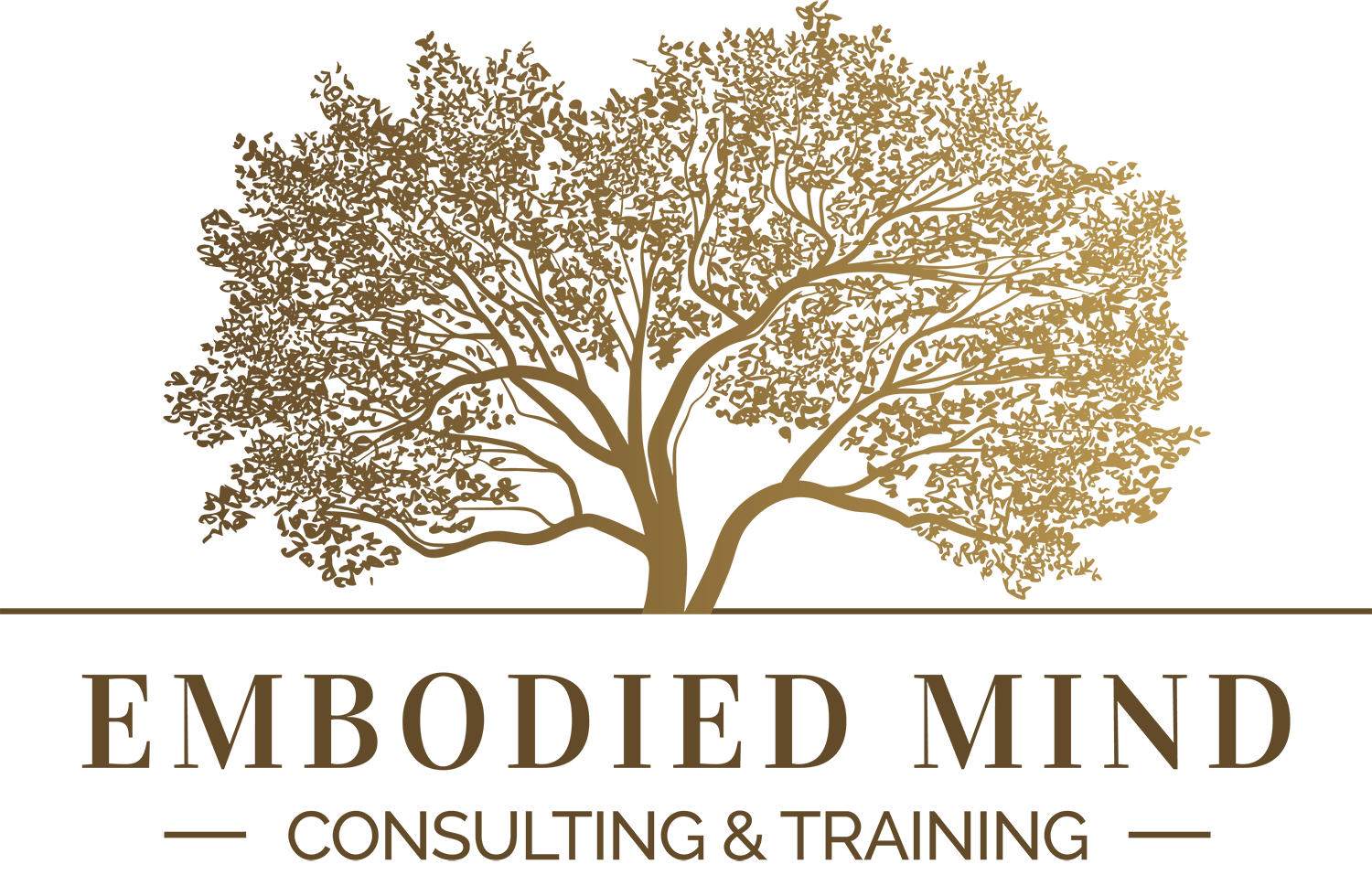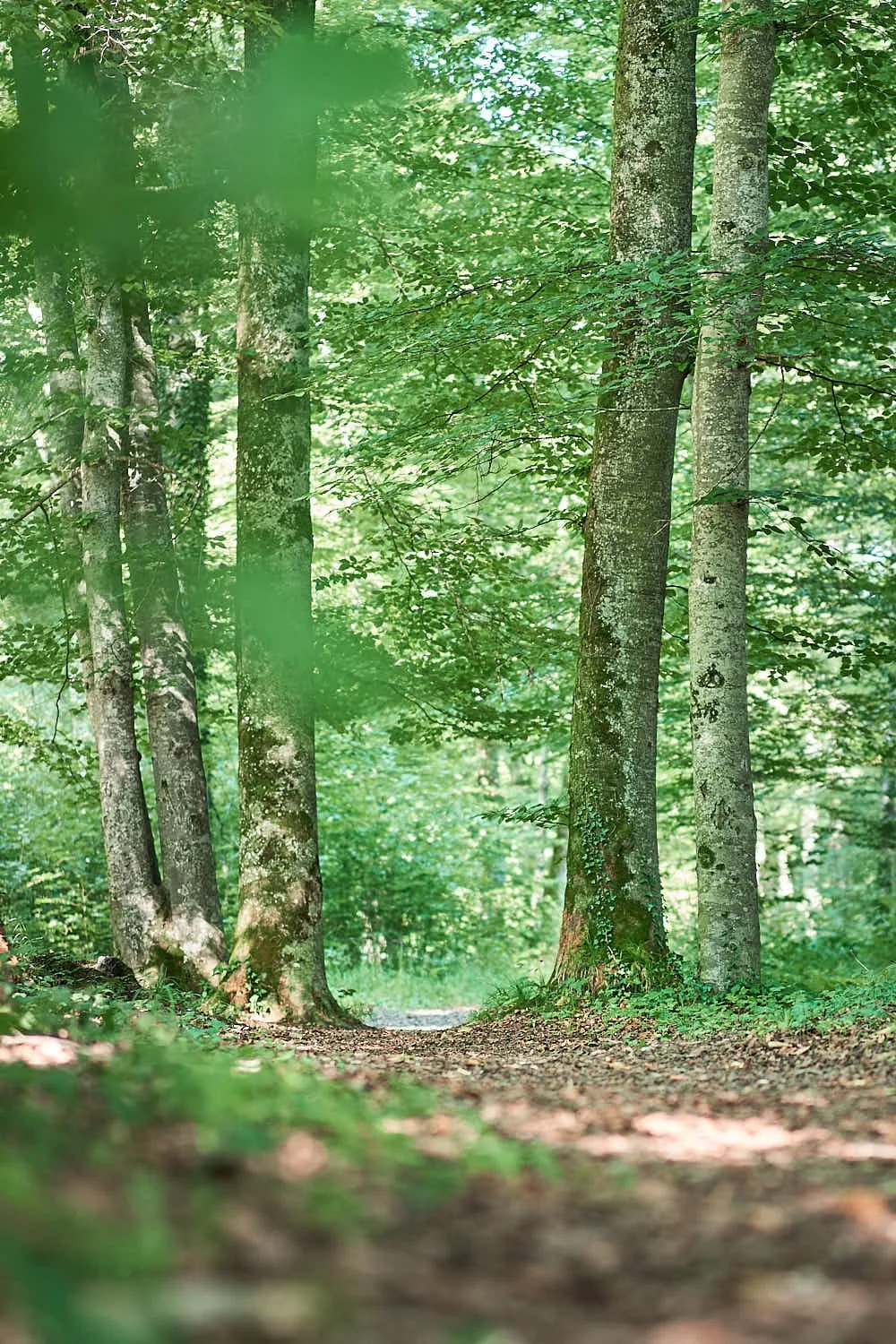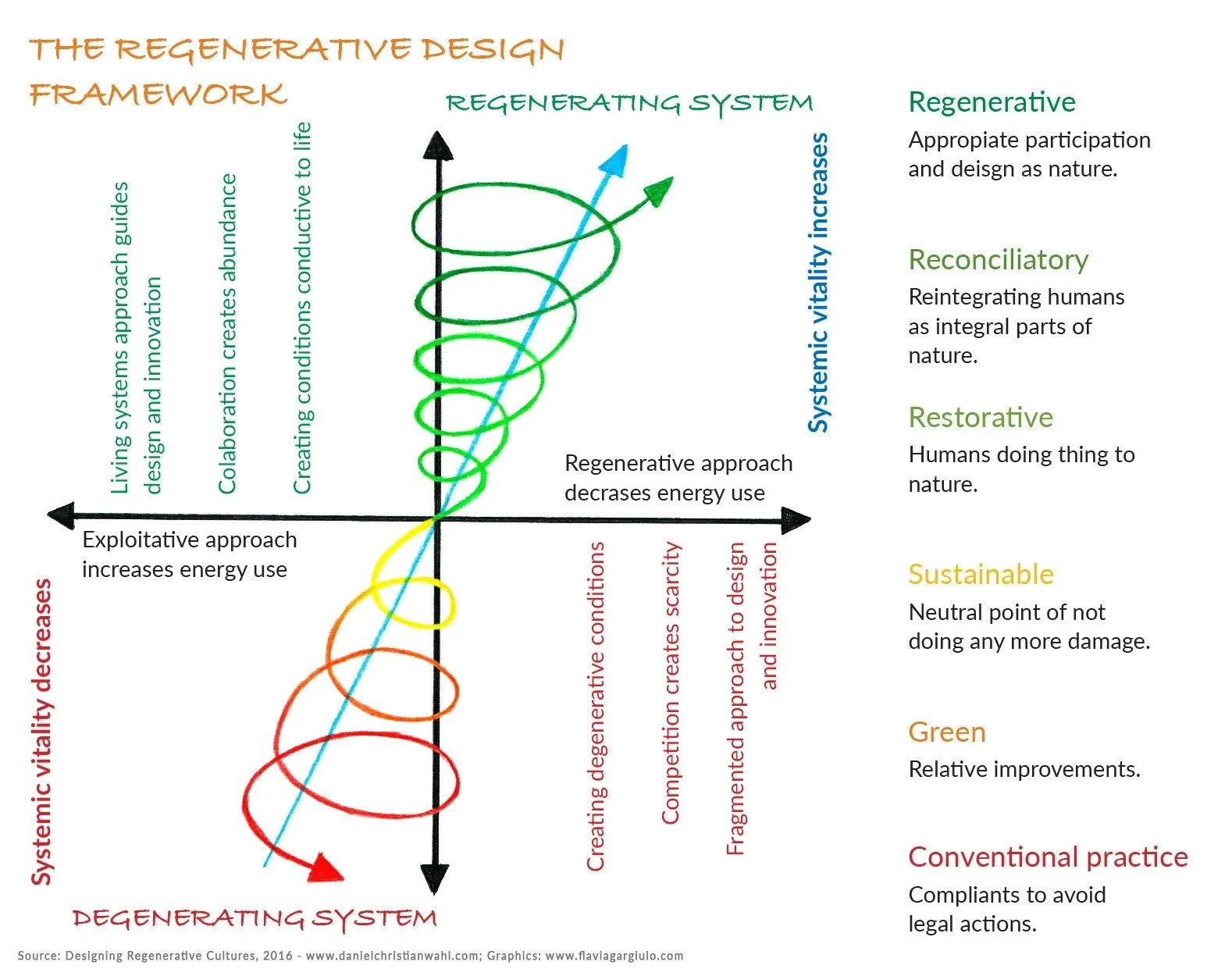Regenerative Companies: Because Sustainability Is Only the Beginning
A blog post by Shirin Groß-Yachkaschi & Hannes Horn, originally published by the Agile Organizational Development Guild
What We’re Setting Out to Do
In March 2021, we founded a circle on the topic of Sustainability in Organizational Development (OD) within the Agile Organizational Development Guild. Our primary focus is how to integrate sustainability into OD.
In the course of our own reflections and learning processes, we came across the topic of regenerative cultures and systems. The perspectives of authors and entrepreneurs with an eco-social, regenerative understanding expand the concept of sustainability into a more holistic worldview. They offer organizational development a concrete mandate: to help co-create regenerative cultures within companies (see e.g. Laura Storm & Giles Hutchins, 2019; Daniel Wahl, 2017).
Together with Anke Loose, Claudia Schröder, Carina Zachariah, Carsten Holtmann and Thomas Klug, we launched a research project on regenerative organizations. Our aim is to conduct learning journeys to organizations we consider regenerative. By learning journey, we mean getting to know and experience the organization more deeply—through one or more dialogue-based interviews, as well as through physically immersing ourselves in the company’s environment with all our senses. We hope to identify recurring patterns that might support other companies in embarking on a similar path.
This blog post is an invitation to people from organizations that already act regeneratively—and are open to entering into conversation with us. In the following section, we share the thinking behind our project and how we understand the concept of regeneration.
Sustainability and Regeneration
The term sustainability has many facets and interpretations, and has evolved significantly since its initial introduction (see e.g. the Brundtland Report, 1987)—expanded further through the Sustainable Development Goals and deeper models. Yet despite growing awareness and increasing discourse, it is well known that the related activities and efforts have not been sufficient: we have now exceeded six out of nine planetary boundaries (Stockholm Resilience Centre), in some cases significantly.
Back around the time of the Kyoto Protocol (December 11, 1997), a purely ecological focus on sustainability
“...as a principle of action for resource use, where long-term satisfaction of needs is ensured by preserving the natural regenerative capacity of the systems involved (especially living beings and ecosystems)” (Wikipedia)
might still have been seen as an effective way to prevent the ongoing destruction and transformation of our ecosystems.
However, the continued rise in greenhouse gas emissions, the growing loss of species, and the ongoing collapse of biodiversity show that humanity has failed to live up to this principle of resource use. Similarly, international agreements have not been sufficient to steer our economic systems toward global social justice.
A regenerative culture transcends the divisions between ecology, economy, and social issues—divisions that we humans created. From a mindset of interconnectedness and interdependence with all living beings on Earth, new ways of living and working emerge—ones that view humans as part of a larger ecosystem. This worldview aligns with systems thinking and complexity theory, and it is also rooted in spiritual traditions like Buddhism, yogic philosophy, or integral approaches.
It fosters an awareness that I cannot harm another living being without also harming myself. Conversely, by cultivating a loving attitude toward all life, I can also treat myself with compassion.
From this perspective, we can no longer treat the foundations of life as mere sources of raw materials or services—nor the environment or other countries as dumping grounds for our waste and emissions. We can no longer justify our material wealth through social injustice or exploitation. Nor can we continue to function in a system that pushes us into self-optimization for ever-increasing productivity.
Regenerative cultures take all of these aspects into account and create locally and culturally adapted solutions that are regenerative on all levels.
“Regenerative is the capacity to continue evolving one’s own understanding of oneself and the world. And the capacity to listen to place and listen to culture and do what life is asking. Stepping out of the way and letting that information come through because we really listen. That is regenerative.”
— Daniel Wahl, DRRS Zoom call, 37th minute
(Source: Daniel Wahl, 2017)
This perspective goes far beyond a purely technological or goal-driven focus (such as climate neutrality or climate-based targets). It leads us to deeper questions about our worldview, our understanding of the economy and collaboration, and the impact of our business models on life on this planet.
Regenerative Organizational Development
We aim to develop a deeper understanding of organizations that act regeneratively so we can make this knowledge available within organizational development. OD, as a field of practice, can make a valuable contribution by fostering reflection at both leadership and employee levels—enabling organizations to help regenerate the ecological and social boundaries that have already been exceeded.
From our point of view, sustainability is about how we handle resources, whereas regeneration adds a (more intuitive) connection to the complexity of life itself.
“Life creates conditions conducive to life.”
— Janine Benyus
In the weeks and months ahead, we’ll be reaching out to companies that have integrated a regenerative worldview—or aspects of one—in order to begin a learning process within our circle on regenerative organizations. The goal of this exploration is to sharpen our ability to accompany organizations on their path toward regenerative cultures.
More blog articles on this topic will follow.
We warmly welcome tips and contacts for organizations and potential dialogue partners—please reach out to:
Shirin – contact@embodied-mind.com
Hannes – info@hanneshorn.com


